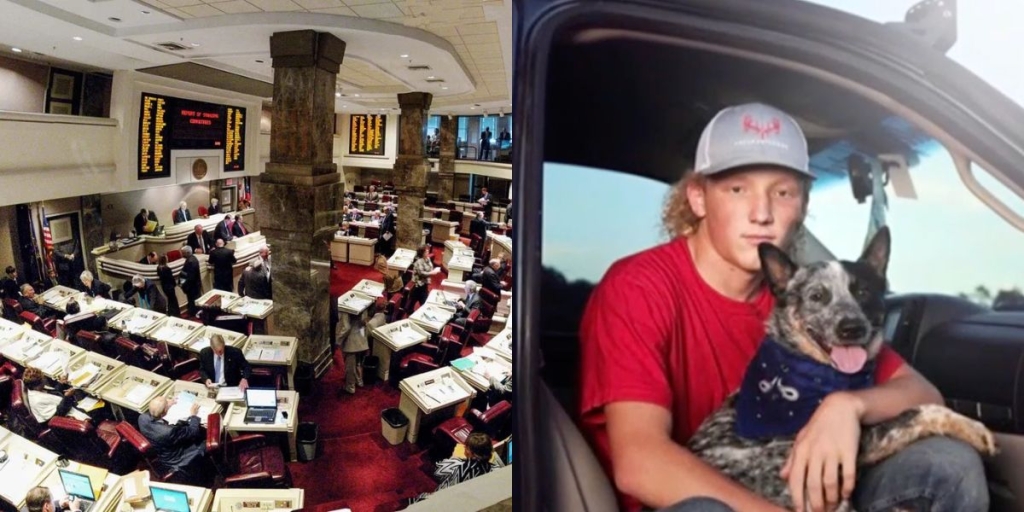
By: Katherine Green Robertson, Dr. John S. Jahera, and Dr. James R. Barth
On November 9, a newspaper in North Alabama published an editorial suggesting that any legislative interest in our state’s public pension system would inevitably spell “disaster” for retirees. The editorial also claims that legislators may be plotting to “shore up” the General Fund through the “cash cow” of Alabama’s public pension system.
In reality, a handful of Alabama legislators are undertaking the mammoth task of ensuring that our state can fulfill the obligations owed to current and future public retirees. This is no small task, as Alabama’s public pensions are underfunded by at least $15.2 billion. To put this number into perspective, every household in Alabama would need to contribute $8,274 to fully fund the system.
To the casual observer, an unfunded pension liability is about as abstract a concept as the national debt. Many taxpayers may wonder why it even matters–will the bill ever really come due?
Politicians in both cases often get away with doing nothing, because they know they won’t be around when the bill does come due to future generations. And every year these problems aren’t dealt with, they worsen.
Alabama’s public pensions, unlike most private sector pensions, are based on a defined benefit formula. This means that state employees pay into their retirement accounts, as do their state employers, and the Retirement Systems of Alabama (RSA) invests that money with a guaranteed return of 8%. Whether or not the investments actually return 8% matters little to state employees, who will receive the same contractual benefit no matter what.
How is this possible? Because the Alabama Legislature–led by the same individuals now being wrongfully accused of trying to raid the pension system–has been faithfully paying a large sum of taxpayer dollars to RSA each year to cover its shortfalls. This year alone, legislators sent RSA nearly $1 billion.
And they didn’t have to.
The state is not legally required to pay the “annual required contribution” (known as the ARC), yet the legislature has never failed to make that payment–even when it has been painful to do so, as it was this year. The ARC is the yearly amount needed to fund current and future retirement benefits and liabilities. Why has the legislature made this payment? To keep the system solvent for our public retirees. Legislators in states like Illinois, New Jersey, and Pennsylvania chose not to fund the ARC, obligating taxpayers to further subsidize these drastically underfunded pensions.
What Alabama’s legislators have begun to realize, however, is that it’s getting harder and harder to make that substantial annual payment to RSA, especially with no end in sight (it’s expected to increase by 3.4% this year).
The legislature’s pension study committee, led by Senator Arthur Orr and Representative Lynn Greer, is taking this concern seriously. The reforms the committee is contemplating will have no impact on the benefits of any current retiree or state employee; however, these changes would aid in protecting the retirement these individuals have already earned. To do so, the rise of our unfunded liability (which has increased by an astounding 625% since 2003) must be halted.
The defined benefit plan exposes the State of Alabama (the employer) to the maximum risk of future funding shortfalls. As long as we continue to add new employees to this plan, we risk going even deeper into pension debt. To avoid this situation, the legislative study committee is looking at pension options for future employees that would reduce the state’s long-term risk of pension underfunding and allow Alabama to pay down its current pension debt. It’s a painstaking task, but one that could have a sizeable and lasting payoff for state employees and taxpayers alike.
Over the years, a number of state leaders have tried but failed to accomplish pension reform for many of the same reasons that congressmen have given up on fighting debt limit increases. For instance, there’s a great deal of misinformation surrounding the debate that heavily clouds the merits and necessity of reform. Some will argue the $15 billion pension debt isn’t even problematic. The general public is largely apathetic to the plight of state employees, who have better retirement benefits than many Alabamians, and state employees are led to believe that reform efforts signal that someone is after their retirement.
In spite of these troubling realities, a few key legislators have decided to roll up their sleeves and attempt to deal with this critical issue. They should be applauded–by state employees, for working to safeguard their retirement funds; by their colleagues, for taking on a weighty assignment that nobody else wanted; and by taxpayers, who may not care much about public pensions, but have been and will continue to be called upon to “shore up” Alabama’s retirement system unless reforms are made.
Katherine Green Robertson serves as Vice President of the Alabama Policy Institute. Dr. James R. Barth is the Lowder Eminent Scholar of Finance and Dr. John S. Jahera is the Lowder Professor of Finance at Auburn University. To speak with the authors, please email [email protected] or call (205) 870-9900.











